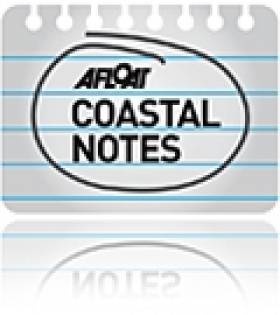Displaying items by tag: The Crown Estate
Local Mooring Association Created to Manage Glenuig Bay Moorings
After community consultation in Scotland, brokered by The Crown Estate, agreement has been reached on the allocation of moorings in Glenuig Bay, on the Sound of Arisaig south of Mallaig.
The issue of moorings in the Bay had been contentious since Glenuig Inn Ltd. applied to position 10 moorings within the Bay. At a public meeting held in Glenuig Village Hall, on Thursday 30 September The Crown Estate and the local community came together to discuss a way forward. Through consultation with existing users an agreement was reached that will provide for most existing moorings to remain in place. Areas for commercial moorings have been set aside to be laid by Glenuig Inn Ltd. and Glenuig Community Association will act as a Moorings Association to manage the remaining moorings within both Glenuig Bay and Samalaman Bay. The new arrangements will allow the Glenuig Inn to expand its business into the leisure sailing market as well as the watersports market, and the local community to keep their boats in the Bay as they have for many years.
Alasdair Carmichael, Chair of the Glenuig Community Association said: "We are grateful to Paul Bancks of The Crown Estate and P.J. Korbel from their managing agents, Bidwells, for taking the time to meet with the various parties and to attend meetings in Glenuig Hall to enable these issues to be resolved. Without their help and patience it would not have been possible for these issues to be resolved to the satisfaction of all parties."
Paul Bancks, coastal manager for Scotland at The Crown Estate said: "This is an excellent example of our day-to-day management and facilitation that goes largely unnoticed, but which plays a vital role in managing the limited marine resource around Scotland's coast. We are delighted to be able to assist the local community at Glenuig and look forward to working with them in the future as they manage the local moorings resource for the benefit of the whole community."
Fishermen and boat owners have moored in Glenuig Bay in Moidart without consent for a number of years. Then, in 2008, the new owner of the Glenuig Inn applied to The Crown Estate and Scottish Government for 10 commercial moorings in the Bay to attract new business and provide facilities for visiting yachts.
The local community were very concerned that they would be 'evicted' from the Bay and would no longer be able to keep their boats close to their homes and businesses.
As owner of the seabed, The Crown Estate commissioned a survey in August 2010 to look at the optimum arrangement for moorings within the bay. The subsequent report, by local company Wallace Stone, identified a number of locations that would accommodate additional moorings and allow access to the important jetty and slipway in the Bay.





























































